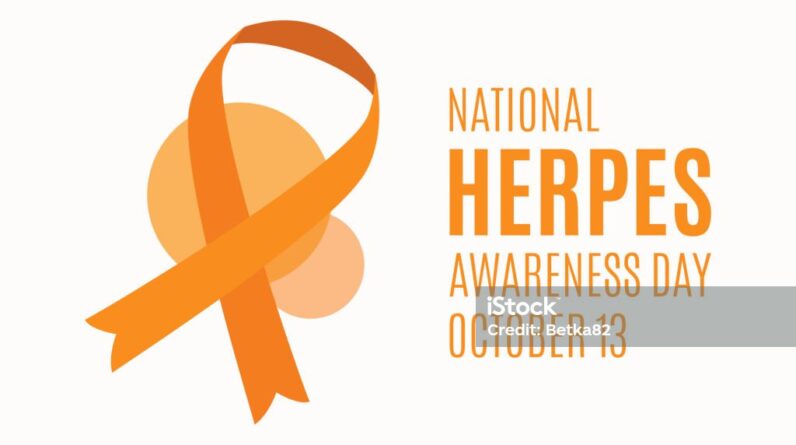
International Skeptics Day, observed on October 13th, celebrates skepticism and critical thinking by encouraging individuals to question accepted beliefs and ideas. On this day, people are encouraged to challenge assumptions and embrace a healthy sense of skepticism.
It is an opportunity to promote the importance of verifying information and thinking critically in a world filled with misinformation and fake news. By actively engaging in skepticism, individuals can make more informed decisions and develop a deeper understanding of the world around them.
So, join in on International Skeptics Day and let curiosity and critical thinking guide your search for truth.
The History And Significance Of International Skeptics Day
International Skeptics Day, or ISD, is celebrated every October 13th. The origins of this day can be traced back to a group of skeptics who wanted to promote critical thinking, rational inquiry, and the scientific method. It is believed that this day was first observed in the late 1990s as a way to bring awareness to the importance of skepticism in a world filled with misinformation and pseudoscience.
The purpose of International Skeptics Day is to encourage individuals to question claims, challenge beliefs, and seek evidence-based explanations. It serves as a reminder that critical thinking is essential in navigating a society where misinformation can spread quickly and easily. This day celebrates skeptics who insist on evidence, logical reasoning, and skepticism as necessary tools for understanding the world around us.
International Skeptics Day has gained recognition in recent years, with various events, workshops, and online discussions promoting skepticism and critical thinking. It serves as a reminder to remain skeptical in the face of extraordinary claims and to always question what we are told.
Celebrating International Skeptics Day Across The Globe
International Skeptics Day is a celebration that takes place annually across the globe. This day is dedicated to promoting critical thinking and rational inquiry. Events and activities are organized to engage people in questioning and doubting.
People from different backgrounds and communities join together to celebrate this day by participating in thought-provoking discussions, debates, and seminars. It is an opportunity to challenge beliefs, explore different perspectives, and foster an atmosphere of healthy skepticism.
International Skeptics Day also recognizes the contributions of famous skeptics who have made significant impacts. These individuals have played a key role in advancing skepticism and encouraging critical analysis in various fields, including science, philosophy, and literature. Their works have inspired many to question assumptions and seek evidence-based explanations.
Table:
Famous Skeptics and Their Contributions:
| Famous Skeptic | Contributions |
|——————————-|———————————————————————-|
| Carl Sagan | Popularizing science, skepticism, and critical thinking |
| James Randi | Investigating paranormal claims and exposing fraud |
| Bertrand Russell | Promoting logic, reason, and skepticism in philosophy |
| Houdini | Exposing fraudulent spiritualists and mediums |
| Michael Shermer | Founding Skeptic magazine and promoting scientific skepticism |
International Skeptics Day reminds us to embrace a questioning mindset, challenge the status quo, and seek rational explanations daily.
Separating Facts From Fiction
International Skeptics Day is a day that encourages critical thinking and questioning of beliefs. It reminds us to separate facts from fiction and not fall for conspiracy theories, which can often spread misinformation and confusion. Debunking these theories is essential in promoting an evidence-based mindset. By analyzing the available evidence and using scientific methods, we can debunk myths and expose pseudoscience claims that lack empirical support.
In addition to debunking conspiracy theories, it is important to scrutinize supernatural beliefs. Many supernatural claims are based on anecdotal evidence or lack scientific rigor. When evaluating these claims, relying on reliable sources of information and empirical evidence is essential. Critical thinking skills are crucial in distinguishing between what can be proven through scientific analysis and what may be purely speculative or based on personal anecdotes.
| Why skepticism is important | How to debunk conspiracy theories | Examining pseudoscience claims |
|---|---|---|
|
|
|
|
|
|
|
|
|
Challenging Popular Beliefs
The role of critical thinking in skepticism cannot be overstated. On International Skeptics Day, it is important to question popular beliefs and not accept things at face value. Critical thinking allows us to examine and analyze information objectively, enabling us to make informed decisions.
Skepticism plays a crucial role in examining paranormal phenomena. Rather than accepting supernatural explanations without question, skeptics approach these claims with a critical eye. By demanding evidence and rational explanations, skeptics challenge the validity of paranormal beliefs and encourage a more rational approach to understanding the world.
Skepticism fosters scientific inquiry and promotes intellectual curiosity. By questioning popular beliefs, skeptics illuminate potentially flawed assumptions and biases. This critical examination ultimately leads to advancements in knowledge and understanding.
Embracing skepticism on International Skeptics Day encourages us to think critically, question everything, and promote intellectual inquiry. We can build a more informed and rational society by challenging popular beliefs.
Encouraging Rational Skepticism
Rational skepticism is a crucial aspect of scientific inquiry. Skepticism fosters critical thinking and encourages scientists to question assumptions and examine evidence objectively. Researchers can test hypotheses, collect data, and draw conclusions based on empirical evidence by employing the scientific method. The scientific method involves making observations, formulating a hypothesis, conducting experiments, analyzing results, and making logical inferences.
Skepticism plays a vital role in verifying the accuracy and validity of scientific findings. It helps identify biases, errors, and misinformation that may undermine the credibility of research. Scientists who approach their work with skepticism strive to maintain objectivity and uphold the principles of scientific integrity.
International Skeptics Day serves as a reminder to embrace rational skepticism, not only in the realm of science but also in all aspects of life. By fostering a spirit of inquiry and critical evaluation, skepticism empowers individuals to discern fact from fiction and make well-informed decisions.
Fostering Healthy Skepticism In Everyday Life
International Skeptics Day is a great opportunity to promote critical thinking and foster healthy skepticism in our daily lives.
In order to cultivate this mindset, engaging in a critical evaluation of news and media sources is crucial. With the widespread dissemination of information on the internet, it is important to question the accuracy and credibility of the sources we rely on.
Encouraging individuals to develop skeptical habits can help them navigate through a sea of misinformation and make informed judgments. By questioning claims, examining evidence, and considering alternative viewpoints, we can avoid accepting everything at face value.
Promoting Curiosity And Open-mindedness
International Skeptics Day is a reminder to embrace curiosity and open-mindedness in our quest for truth. It encourages us to question the established norms and critically analyze information without hesitation before accepting it.
By cultivating these qualities, we actively pursue knowledge and understanding. Intellectual exploration allows us to challenge our preconceived notions and fosters personal growth. We constantly evaluate and validate the information we encounter through skepticism.
This day serves as a call to action for individuals to approach the world with a mindset of inquiry and to recognize the value of doubt in the pursuit of truth. Let us celebrate International Skeptics Day by embracing our innate curiosity and promoting open-mindedness to advance our understanding of the world collectively.
Advocating For Evidence-based And Well-informed Decision Making
The Impact Of Skepticism On Society And Policy
Skepticism plays a vital role in combating misinformation. In an era dominated by fake news and alternative facts, it is crucial to promote evidence-based and well-informed decision making. Skeptics challenge commonly accepted beliefs and encourage critical thinking and examination of factual evidence. We can avoid falling victim to manipulation and deception by questioning the information presented to us.
Skepticism has a profound impact on society and policy. It pushes individuals and institutions to apply rigorous scrutiny to claims and ideas, ensuring that only reliable and accurate information prevails. Skeptics foster a culture of questioning and skepticism, which helps to maintain transparency, accountability, and integrity in various aspects of our lives, from scientific research to public health policies.
In today’s world, where misinformation spreads rapidly and has real-life consequences, skepticism is more important than ever. It empowers individuals to think critically, make informed decisions, and demand evidence to support claims. Promoting skepticism can create a society that values truth, knowledge, and rationality.

Credit: www.timeanddate.com
Frequently Asked Questions Of International Skeptics Day
What International Day Is The 13th Of January?
The 13th of January is recognized as “International Rubber Duck Day. “
Why Is Skepticism Good?
Skepticism is beneficial because it encourages critical thinking, ensures objectivity, and promotes the pursuit of truth. By questioning beliefs and claims, skepticism fosters intellectual growth and helps avoid accepting false or misleading information. It allows for a deeper understanding of complex issues and encourages evidence-based decision-making.
What Is International Skeptics Day?
International Skeptics Day is observed on October 13th every year to promote critical thinking, skepticism, and scientific inquiry. It encourages people to question beliefs, examine evidence, and think critically before accepting information.
Why Is International Skeptics Day Celebrated?
International Skeptics Day is celebrated to raise awareness about the importance of skepticism in a world where misinformation and false beliefs can easily spread. It aims to promote rational thinking, evidence-based reasoning, and the scientific method as tools to navigate through an information-rich society.
Conclusion
International Skeptics Day is a unique celebration that encourages critical thinking and questioning. It reminds us to approach information and claims with a healthy dose of skepticism rather than accepting everything at face value. The day serves as a reminder to constantly seek knowledge, challenge assumptions, and engage in thoughtful analysis.
So, embrace your inner skepticism and let it guide you towards truth and clarity. Happy International Skeptics Day!





